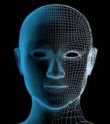 |
||
Accueil > FORUM TERATEC > Programme > Atelier 4
Decoherence and electron transfers within proteins: are quantum effects relevant for biology ?
Aurélien DE LA LANDE
Abstract : The development of experimental techniques over the last decades has enabled a finer and finer investigation of the molecular mechanisms underlying biological processes (e.g. photosynthesis, cellular respiration, enzymatic catalysis) up to the point of revealing quantum effects like electron or proton tunneling or long lived coherences. Such fine quantum effects appear as surprising given the warm soft nature of biological media, as opposed to the cold hard world where quantum effects dominate. There is today an intense activity over the world to probe, interpret and understand the relevance of quantum effects in biology. So far, however, it has not been established that quantum effects are required for efficient biological functions. A more detailed understanding of quantum coherent effects demands thorough and comprehensive investigations combining the quantum dynamic theory with structure-based modeling based on quantum chemical calculations and molecular dynamics simulations. During this presentation I will present some results obtained by our group on the understanding of the role played by coherences in biological electron transfers. I will insist on the current methodological locks and on the computational strategies we are developing to circumvent them. Recent simulations of ultrafast electron transfers within plant cryptochromes will be presented.[3]
|
![]() La participation à cet atelier est gratuite sous réserve des places disponibles
La participation à cet atelier est gratuite sous réserve des places disponibles
![]() L'enregistrement en ligne est obligatoire pour y assister. Cliquer ICI pour vous inscrire.
L'enregistrement en ligne est obligatoire pour y assister. Cliquer ICI pour vous inscrire.
